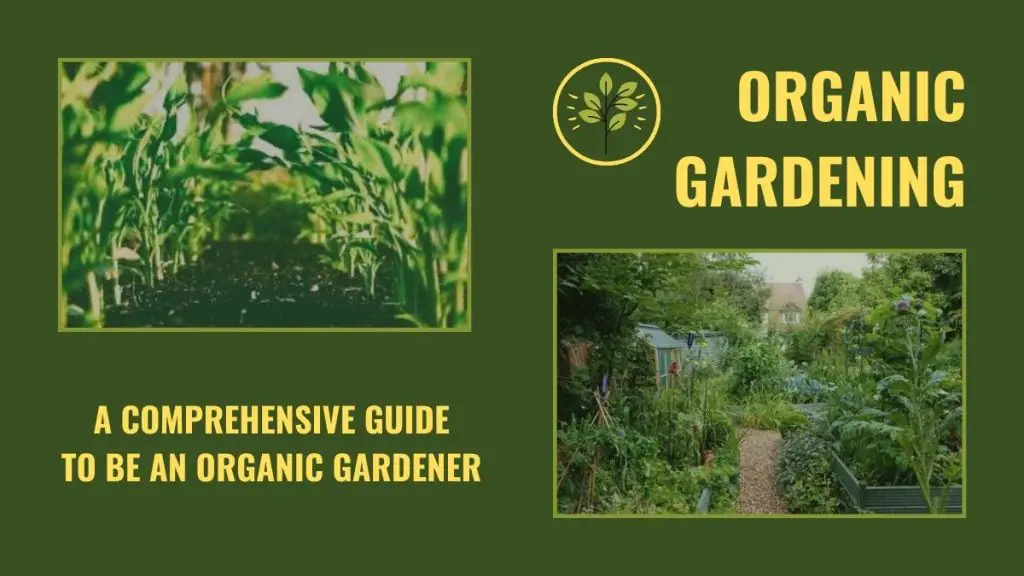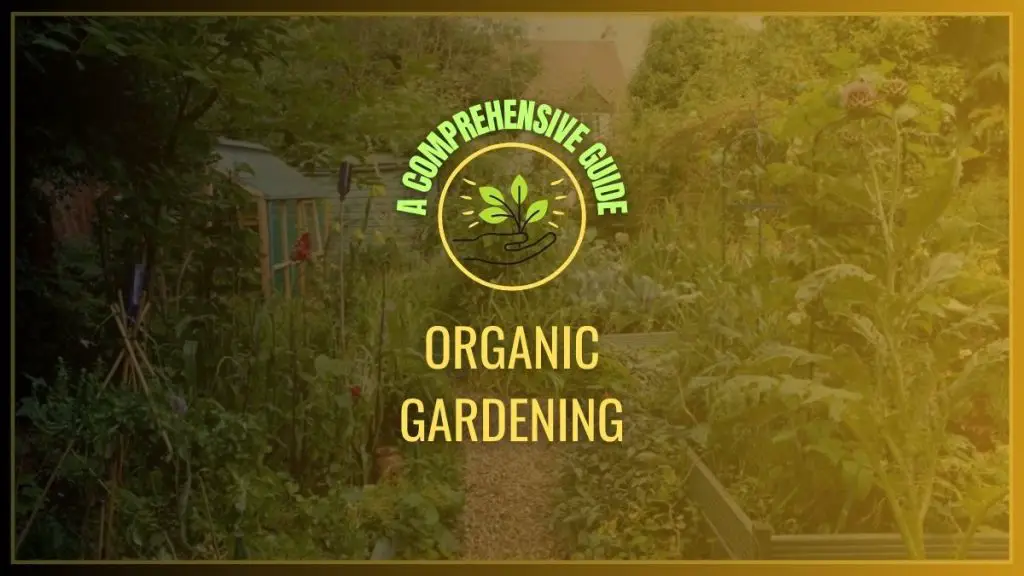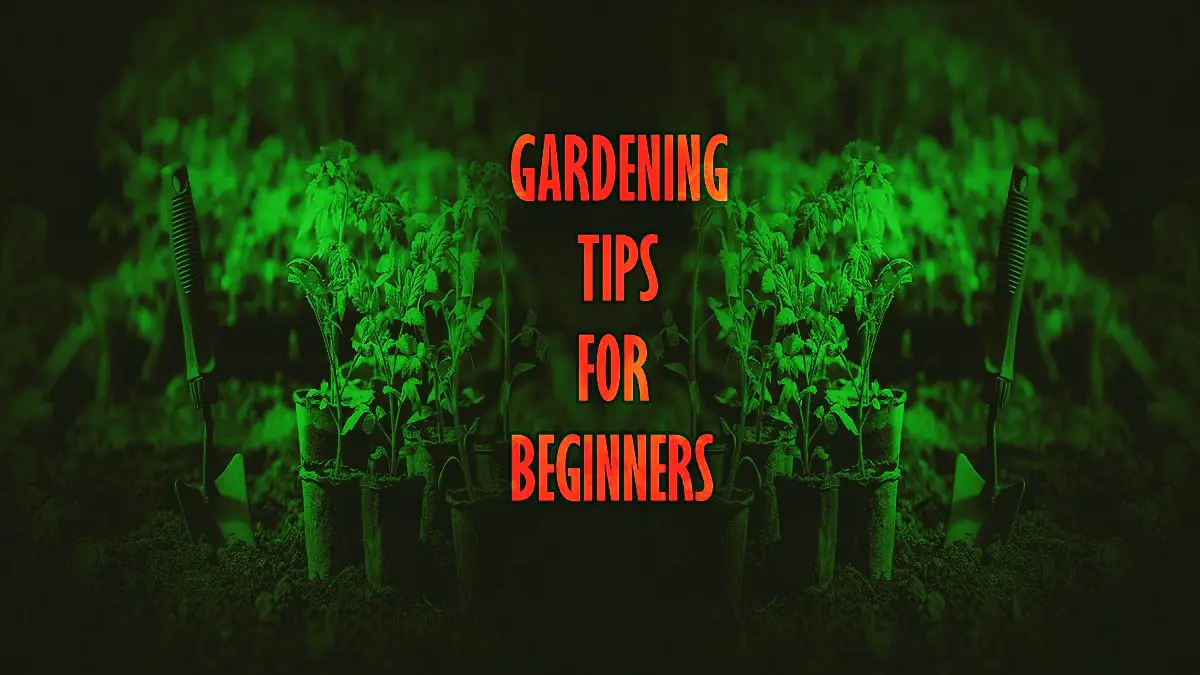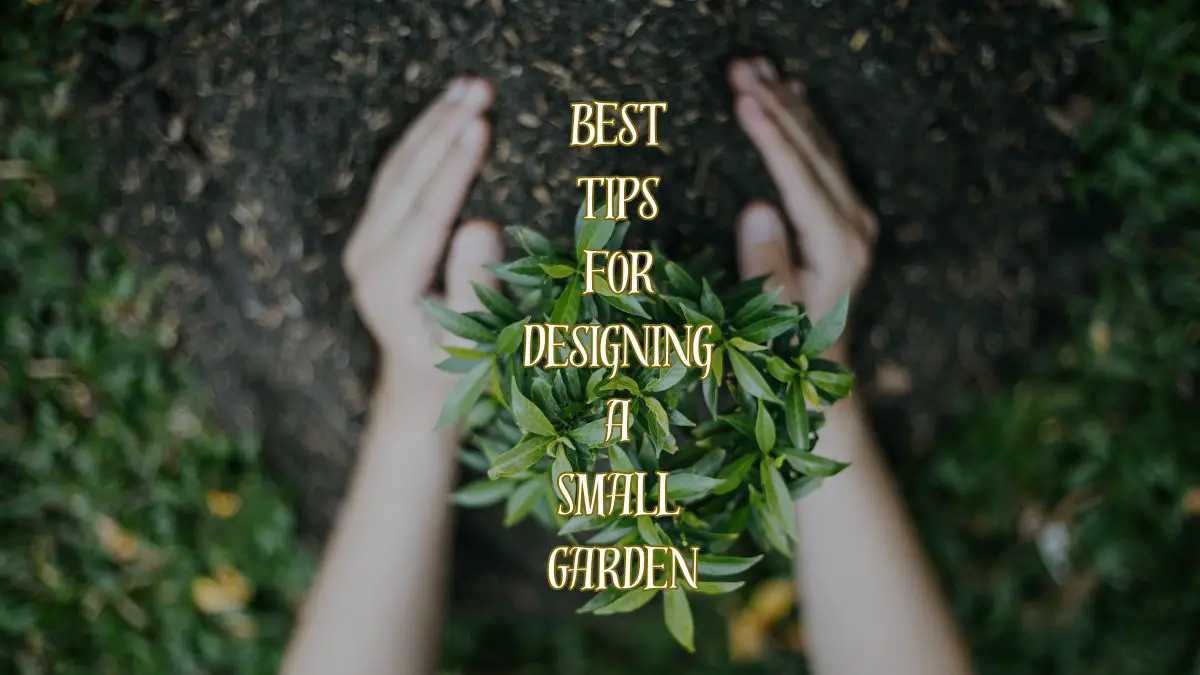Are you looking for something about organic gardening? Then you are in the right place to get a warm welcome here. This is where we are going to discuss the details of organic gardening.
Organic gardening is a holistic approach to cultivating plants that emphasizes harmony with nature, eschewing synthetic chemicals and embracing sustainable, eco-friendly practices. This method of gardening has gained significant popularity in recent years as people become more conscious of the impact of conventional farming on the environment and the quality of the food they consume.
In this article, we will delve into the principles, benefits, and practices of organic gardening, exploring how it contributes to environmental sustainability and the production of healthier, more nutrient-dense crops.
Related Article: The Art of Chaos Gardening: A Unique Approach Gardening
You may also read: Best Gardening Tips for Beginners: Cultivate Your Green Thumb

Related Article: The 14 Best Tips For Designing A Small Garden
You may also read: The Ultimate Guide to Garden Tool Organization: Maximize Efficiency
Exploring the Beauty of Organic Gardening:
What Is Organic Gardening?
Organic gardening is a sustainable and ecologically conscious approach to cultivating plants that prioritize the use of natural, non-synthetic methods and materials. Rooted in principles that promote soil health, biodiversity, and environmental stewardship, organic gardening avoids the use of synthetic pesticides, herbicides, and fertilizers. Instead, it relies on techniques such as composting, crop rotation, companion planting, and natural pest control to foster a balanced and self-sustaining ecosystem. The goal of organic gardening is to produce healthy, nutrient-dense crops while minimizing the environmental impact, preserving soil fertility, and promoting overall ecological well-being.
Principles of Organic Gardening
Soil Health:
The foundation of organic gardening lies in nurturing the soil. Healthy soil teems with life, including beneficial microorganisms, fungi, and earthworms. Organic gardeners focus on building and maintaining fertile soil through the use of compost, cover crops, and organic matter. This enhances soil structure, water retention, and nutrient availability for plants.
Biodiversity:
Embracing diversity in the garden is another core principle of organic gardening. Planting a variety of crops helps create a balanced ecosystem, reducing the risk of pests and diseases. Companion planting, a practice where certain plants are grown together to enhance each other’s growth or deter pests, is a common technique in organic gardening.
Natural Pest Control:
Instead of relying on chemical pesticides, organic gardeners employ natural methods to control pests. This includes introducing beneficial insects like ladybugs or using companion plants that repel pests. Maintaining a healthy ecosystem in the garden helps keep pest populations in check without harming the environment.
Avoidance of Synthetic Chemicals:
One of the defining features of organic gardening is the exclusion of synthetic fertilizers, herbicides, and pesticides. Instead, organic gardeners use natural alternatives, such as compost, mulch, and organic pest control methods. This not only protects the environment but also ensures that the produce is free from harmful residues.
Related Article: There are No Gardening Mistakes, Only Experiments: Grow Boldly!
You may also read: Best Plants to Grow Under Trees – A Complete Guide
You may also read: Unveiling the Beauty of a Hidden Garden
Benefits of Organic Gardening
Environmental Conservation:
Organic gardening promotes sustainable farming practices that protect the environment. By avoiding synthetic chemicals, organic farmers prevent soil and water pollution, contribute to biodiversity conservation, and reduce the overall ecological footprint of agriculture.
Healthier Produce:
Organic crops are grown in nutrient-rich soil without the use of synthetic chemicals. This results in produce that is not only free from pesticide residues but is also often more flavorful and nutrient-dense. Studies have suggested that organic fruits and vegetables may contain higher levels of vitamins, minerals, and antioxidants.
Improved Soil Fertility:
The focus on soil health in organic gardening leads to improved fertility over time. The use of compost and organic matter enhances soil structure, water retention, and nutrient content, providing a sustainable and regenerative approach to agriculture.
Resilience to Climate Change:
Organic farming practices, with their emphasis on biodiversity and soil health, contribute to the resilience of ecosystems in the face of climate change. Diverse plantings and healthy soils can better withstand extreme weather conditions, making organic farms more adaptable to a changing climate.
How to Start Organic Gardening Properly
Starting an organic garden requires careful planning and a commitment to sustainable and environmentally friendly practices. Here’s a step-by-step guide to help you begin your organic gardening journey:
Choose the Right Location:
Select a sunny spot for your garden with well-draining soil. Avoid areas with compacted or waterlogged soil. Consider the proximity to water sources and the availability of sunlight throughout the day.
Prepare the Soil:
Test your soil to understand its composition and pH. Amend the soil with organic matter such as compost, well-rotted manure, or aged leaf mulch to improve fertility and structure. Organic matter enhances water retention and provides essential nutrients for plant growth.
Plan Your Garden Layout:
Design your garden layout based on the principles of companion planting and crop rotation. Group plants with similar water and sunlight needs together. This helps create a harmonious ecosystem and maximizes space utilization.
Choose Organic Seeds and Plants:
Purchase organic, non-GMO seeds or seedlings from reputable sources. This ensures that your garden starts with plants free from synthetic pesticides, herbicides, and genetic modifications.
Implement Companion Planting:
Research companion planting strategies to maximize the benefits of plant interactions. Certain plants can help deter pests, enhance flavor, or provide structural support to neighboring crops. Utilize companion planting to create a biodiverse and resilient garden.
Create a Compost System:
Start a compost pile or bin to recycle kitchen scraps, yard waste, and other organic materials. Compost adds valuable nutrients to the soil and improves its structure. Regularly turn the compost to speed up the decomposition process.
Mulch Your Garden:
Apply organic mulch, such as straw, leaves, or wood chips, around plants to conserve soil moisture, suppress weeds, and regulate temperature. Mulching also contributes to soil health by gradually breaking down and adding organic matter.
Practice Crop Rotation:
Plan a crop rotation schedule to prevent soil-borne diseases and maintain soil fertility. Avoid planting crops from the same family in the same location year after year. Rotate crops to disrupt pest and disease cycles.
Natural Pest Control:
Encourage natural predators like ladybugs, lacewings, and predatory beetles to control pests. Use physical barriers, like row covers, and implement companion planting to deter common garden pests. Neem oil and insecticidal soaps are organic options for controlling certain pests.
Water Wisely:
Implement efficient watering practices to conserve water and prevent waterlogged soil. Use drip irrigation or soaker hoses to deliver water directly to the base of plants. Water early in the day to minimize evaporation and reduce the risk of diseases.
Continuous Learning:
Stay informed about organic gardening practices, new varieties of organic seeds, and sustainable gardening techniques. Attend workshops, read books, and connect with local gardening communities to exchange knowledge and experiences.
By following these steps and maintaining a commitment to organic principles, you can start and sustain a thriving organic garden that not only produces healthy and flavorful crops but also contributes to the overall well-being of the environment.
To know more about Organic Gardening>>
Related Article: A Comprehensive Guide to Garden Pest Control Makes Garden Beautiful
You may also read: The Ultimate Guide to Choosing the Right Aeroponic Tower Garden
Conclusion
Organic gardening is not just a set of techniques; it’s a philosophy that embraces sustainability, environmental stewardship, and a commitment to producing healthy and nutritious food. As individuals and communities increasingly recognize the importance of these principles, organic gardening is becoming a cornerstone of the movement toward a more sustainable and resilient food system. Whether practiced on a small backyard scale or as part of larger agricultural endeavors, organic gardening offers a pathway to harmonious coexistence with nature, fostering a healthier planet for future generations.
Related Article: The 11 Best Gardening Tool Sets of Recent Times
You may also read: The 9 Best Garden Tool Organizers of Recent Times
You may also read: Creating a Vertical Oasis: The Beauty of Hydroponic Tower Garden
- Indoor Plant Care Tips for Enthusiasts: Lush Oasis Secrets - July 6, 2024
- The Best Electric Garden Tools: Maximize Your Green Thumb! - June 23, 2024
- Exploring the Diversity of Rock Garden Plants for Unique Gardens - June 10, 2024




Pingback: The Ultimate Guide to Choosing the Right Aeroponic Tower Garden - Dwell Gardens
Pingback: Creating a Vertical Oasis: The Beauty of Hydroponic Tower Garden - Dwell Gardens
Pingback: There are No Gardening Mistakes, Only Experiments: Grow Boldly! - Dwell Gardens
Pingback: Low Maintenance Garden Border Ideas: A Complete Guide to Know Dwell Gardens
Pingback: A Comprehensive Guide to Garden Pest Control Makes Garden Beautiful - Dwell Gardens